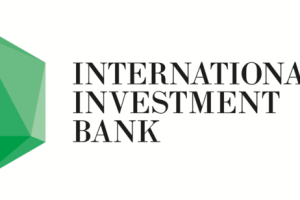Alătură-te comunității noastre!
Vezi cele mai recente știri & informații din piața de capital

Financial literacy is positively linked to financial outcomes, and as such, it is essential if individuals are to thrive in today’s society. Millennials are making financial decisions that will likely shape the future of the economy for the next 30 years, and they are doing so in an increasingly complex financial landscape.
Millenials (individuals age 18–37 in 2018) are the largest, most highly educated, and most diverse generation in history. Well-designed workplace financial wellness education programs can serve as catalysts for increasing financial literacy among millennials. A financially strong and healthy workforce provides the foundation for empowered communities and economic growth.[emaillocker]
Every generation has the capacity to influence the economy, especially millennials, also known as Generation Y. This is the largest generation in history—it is young, educated, and ethnically diverse. Given its size, the millennial generation is already an influetinerintial force in society (for example millennials comprise the largest share of the U.S. labor force at 35% total of 56 million individuals) and is poised to play a pivotal role in countries’ long-term social and economic development.
Millenials have come of age in a financial landscape that has undergone rapid and substantial change, ranging from an expansion in investment products to a fundamental shift in the retirement system. The growing availability of financial and consumer technology has further influenced financial decision making. As a result, millennials face an increasingly complex environment.
Thus, the ability to make informed financial decisions and successfully manage their personal finances has become an essential skill for millennials. As they approach critical financial decision-making junctures, their choices promise to greatly affect the economy, yet it is increasingly apparent that the financial position of millennials is quite fragile.
Money management behavior
A recent study, developed by the Global Financial Literacy Excellence Center, shows that millennials currently tend to be highly indebted. Concerns about student loan repayment and over-indebtedness are more common among millennials than older working-age adults. Further, millennials more commonly engage in expensive money management behaviors than do older working-age adults.
They also demonstrate lower basic financial literacy levels while at the same time being more likely to overestimate their own financial knowledge. In addition, millennials are worse off along these dimensions than young adults were in 2009. These factors likely explain much of the financial fragility and high levels of anxiety over personal finances that exist among millennials.
In addition to investigating millennials’ asset and debt holdings, it is useful to understand how they are
managing their money. A large part of the financial distress perceived among millennials may be traced to expensive money management behaviors.
Wrong credit card use, alternative financial services use, inability to cope with short-term financial shocks, reduced saving for retirement are money management behaviors that can lead to financial distress (and/or are indicative of financial distress) and that seem to be more common among millennials.
Short-term savings
Fewer millennials set aside emergency funds compared to older working-age adults (41% and 45%, respectively), and a higher percentage spend more than their income. Furthermore, a higher proportion of millennials, especially those between 28 and 37 years old, find it somewhat or very difficult to pay their bills (56%) compared to older working-age adults (48%).
Financial literacy
The high likelihood of millennials engaging in poor short and long-term money management behaviors is likely connected to many factors, one being low financial literacy. Individuals are classified in this report as financially literate if they are able to answer the “Big Three” financial literacy questions correctly. These three questions are meant to test a respondent’s knowledge of three basic personal finance concepts: interest rates, inflation, and risk diversification.
62% of millennials assessed their own financial knowledge as high or very high; however, only 19% of these respondents could answer the three financial literacy questions correctly. These results indicate overconfidence among millennials and poor financial literacy. This is particularly worrisome given that these questions are measuring the understanding of basic financial concepts.
The link between Fintech innovations and financial literacy
Fintech innovations are now revolutionizing the way individuals manage personal finances, conduct transactions, and take on job tasks. Supported by smartphones, fintech aims to simplify daily lives and provide ways to easily manage money. Nevertheless, the variety of fintech tools available and their overall reach does not necessarily improve the state of an individual’s personal finances and financial wellbeing.
Ready access to fintech tools coupled with low financial literacy might in fact have a negative effect on
individuals’ financial situations and money management behavior. The study showed that fintech cannot be a substitute for financial literacy. Contrarily, when fintech use is coupled with financial illiteracy, there is a greater tendency for poor money management.
For example, millennial mobile payment users are more likely to overdraw their current account than non-users. However, if the mobile payment users are financially literate, they are significantly less likely to overdraw their current accounts. These results are in line with previous research which shows that fintech use in combination with financial literacy has the potential to improve money management behavior. Thus, fintech should be viewed as a complement to, not a substitute for, financial literacy.
Because millennials use fintech tools more often than the rest of the working-age population (55% of millennials versus 36% of older working-age adults) and display the lowest financial literacy rates, findings in this report could aid the design of financial education programs targeted at tech-savvy millennials.
What should employers do in order to improve millenials’ financial literacy?
Effective workplace financial wellness programs should take a holistic approach to financial health and go beyond improving financial literacy. The study recommends that employers who are interested in implementing such a program consider the following:
1. Start with a financial checkup to assess employees’ current financial health.
2. Focus on an integrated approach. Data from the report shows that different employees carry different types of assets and debt; programs should help employees manage both assets and debt. They should also help employees build both short- and long-term savings.
3. Make it personalized. Every employee has specific needs and financial circumstances. The more a financial wellness program is tailored to the specific needs and financial situations of individuals, the more effective it is.
4. Make it simple and timely. The research shows that simple language and a step-by-step action plan is critically important to improve engagement and effect behavioral change.
Conclusions
Financial difficulties can be a major source of stress for employees. Thus, financial knowledge is an essential skill if individuals are to thrive in today’s society; it drives sound financial decision making and thus impacts people’s well-being and financial security. A financially strong and healthy workforce provides the foundation for empowered communities and economic growth.
The full study can be found here.[/emaillocker]
[ajax_load_more]









Vezi cele mai recente știri & informații din piața de capital